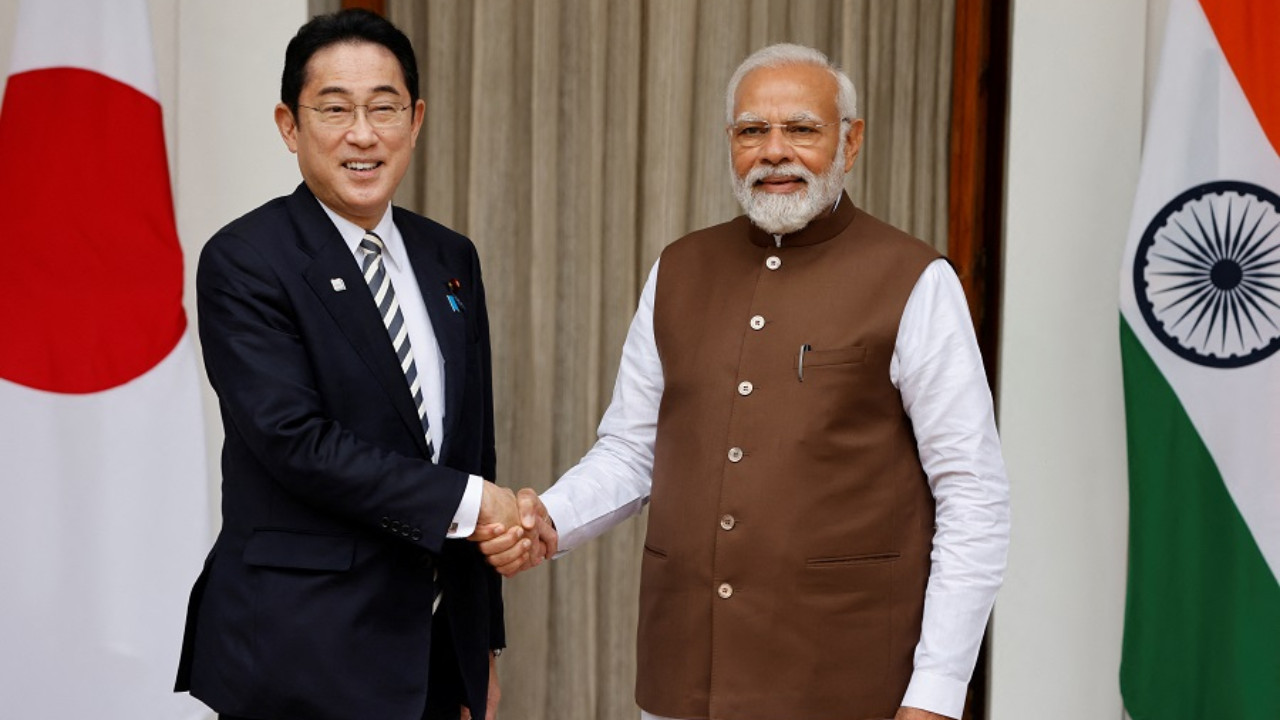
India and Japan Join Hands to Counter China—Ambani Also on Board! (Source: Adnan Abidi/Reuters)
China has tightened its grip on the supply of rare earth materials, causing upheaval in India’s auto and electronics industries. These materials are critical for everything from smartphones to electric vehicles, and without them, production lines risk coming to a standstill. However, India and Japan have now joined forces to tackle this crisis. According to a report by Mint, several major Japanese companies are working with India to strengthen the supply chain of rare earths and batteries. Meanwhile, Indian giants like Mukesh Ambani’s Reliance and Amara Raja are ready to seize this opportunity.
As per the report, over a dozen Japanese companies are currently camped in Delhi. These are not minor players but industry heavyweights like Mitsubishi Chemicals, Sumitomo Metals and Mining, and Panasonic. All of these companies are part of Japan’s industrial body, the Battery Association of Supply Chain (BASC). Their goal is to partner with Indian firms to reinforce the supply chain of rare earth materials and electric vehicle (EV) batteries. These Japanese companies are exploring partnership opportunities in India to reduce dependence on China. China currently dominates more than 90% of the global supply of rare earth materials. But India and Japan are now actively working together to break this monopoly.
Indian companies are not lagging behind in this entire game. According to the Mint report, major Indian firms like Reliance and Amara Raja are already in talks with Japanese companies. The primary focus of these discussions is on the supply chain for lithium-ion batteries and critical minerals such as lithium and graphite. These batteries are essential for electric vehicles and energy storage systems. Reliance, known for capitalizing on every major business opportunity, is leaving no stone unturned this time either. Mukesh Ambani’s company is crafting a new game plan by combining Japanese technology with India’s market power. Meanwhile, Amara Raja is also swiftly working to strengthen its foothold in battery production. Together, companies from both nations aim not just to diversify the supply chain but also to challenge China’s dominance.
Last week, the Ministry of Finance made it clear that the government is making every possible effort to secure the supply of critical minerals. Amid rising tensions in global trade, India is working rapidly to fortify its supply chains. The government’s aim is not only to start domestic production of rare earth materials but also to establish a strong presence in the global supply chain. To this end, partnerships with countries like Japan are being deepened. Japanese companies are bringing their expertise in battery materials and technology, which could prove to be a game-changer for India. However, the challenges are significant.
Experts say that breaking China’s grip will not be easy. China holds an almost complete monopoly over the mining, refining, and processing of rare earth elements. It also accounts for 80% of global lithium battery production, while Japan comes second with a 10% share. Most of India’s EV companies currently import batteries from China, with the remainder coming from South Korea and Japan. China's strength lies in the fact that it doesn’t rely on imports for raw materials. It controls the entire value chain of rare earths. This is why, despite the India-Japan partnership, the path ahead remains difficult.
Experts also note that if India starts production of rare earth magnets or batteries, it could be 20–30% more expensive than in China. This is because Chinese companies are self-sufficient in raw materials, while India and Japan still have a long way to go on that front. Japanese companies can assist with battery materials and technology, but their main expertise lies in hybrid technology. Still, this is a big opportunity for India. If domestic companies can combine Japanese technology with India’s market strength, it could pave the way for self-reliance in rare earth and battery production in the future.





Copyright © 2026 Top Indian News
